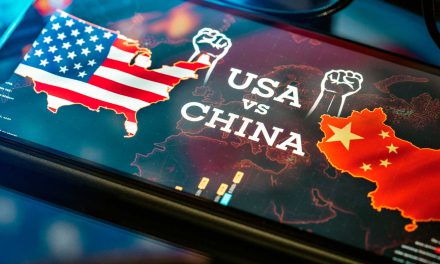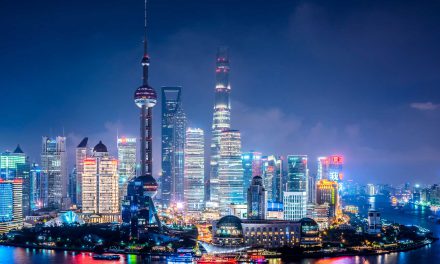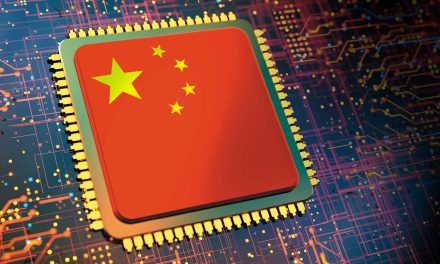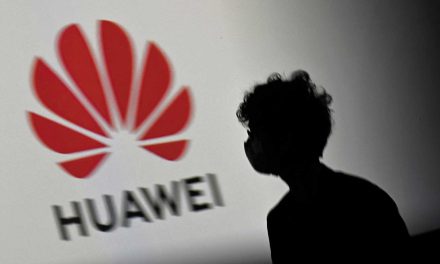The name “China” in Africa’s ICT and digital tech narratives in today’s language often evokes a counter-intelligence nightmare for both African governments and the United States (US). The accusation emerges from the unclear, or at least suspicious, intentions that continue to puzzle most researchers. For some critiques, this is because most scholarship focuses on hyperbolic tones, which tend to emphasise “neo-colonialism and debt-traps” or, less often, “win-win cooperation and investment”. Despite being a major player in similar accusations, the US is almost non-existent in the conversations.
Not long ago, any technology from China in Africa was tantamount to “counterfeit or fake”. In fact, the name China was synonymous with words like ‘gong’a in Zambia, ‘feki or bandia’ in Tanzania and Kenya, Aba ike! products in Nigeria, enye papa in Ghana. All of these words referred to the fact that Chinese products were fake and not durable. However, in recent years, Chinese technologies have proved reliable, with African governments being among the top customers for surveillance tools, such as those in smart cities.
Essentially, smart cities are modern urban areas equipped with high technological capabilities to collect data, for purposes of public safety and efficient service delivery. Smart cities in Africa today include the Modderfontein New City in Johannesburg, South Africa, Kigali Innovation City in Rwanda, and Konza City in Kenya. Though there are traces of the West operating such technology, China, and particularly Zendai Groups of China are evident developers and owners of such cities and digital surveillance tools. Such endeavours have attracted scrutiny, with many questioning what they mean for domestic human rights and for governments spying on their own people. Some have even extended the criticism to perceiving China as a trojan horse for spying on African governments.
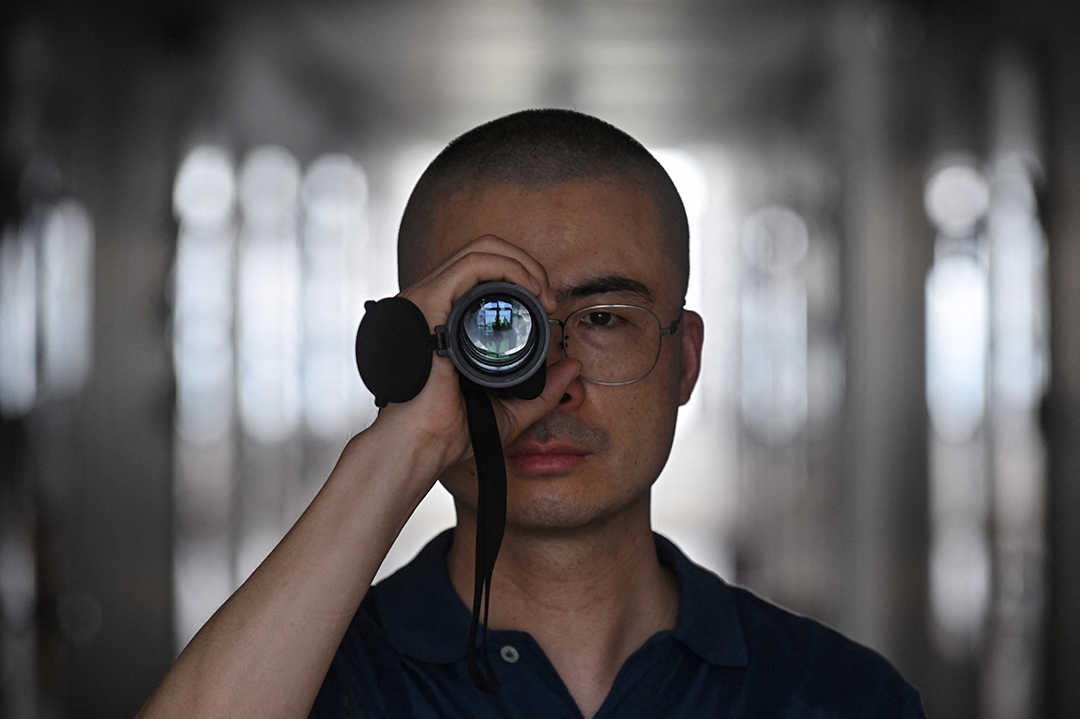
African countries have shown strong interest in the procurement and use of data surveillance technology from China. Photo: Hector Retamal/ AFP
Should Africa be worried? A quick response would be “YES”, because there is a distinction between what Africans worry about in relation to the rest of the world. Generally, arguments about surveillance are western-centred in the sense that most people from the West perceive and value the idea of surveillance in terms of personal freedom. In most western scholarship, the idea of surveillance falls under the category of “being left alone” by governments. For example, people might choose to retreat into the woods, far away from technology, to be left alone – and so comes the quest for “the right to be left alone”.
When critically analysed, most cyber-security policies in the US, though intended to surveil, are primarily designed to protect the higher good. For example, mobile phones in the US have built-in batteries for the purpose of tracking the device even when someone has switched off their phone. The idea sounds crude, but you will appreciate the policy when you analyse how many people go missing in the US and how that policy has helped find missing individuals.
In a recent symposium on driverless cars, a heated debate arose regarding whether manufacturers should be allowed to have remote control access to the vehicles. For many, that was unacceptable, while others felt that it would be an opportunity to forestall unnecessary accidents caused by reckless drivers or dangerous police pursuits. Consider the case of OJ Simpson and his pursuit by police after his former wife was murdered. What if the manufacturer of his vehicle had access to the vehicle? Although there were multiple variables at play, the basic idea of having control of that vehicle would have shaped the outcome – at least some individuals argued.
In Africa, however, surveillance is connotatively different. The reality is that our democracies are still young. Evidence from different countries suggests that unlike in most western countries, the idea of surveillance is accompanied by political intimidation as opposed to knowing what an individual is doing on their phone. It is true that things like mobile number registration have helped reduce cases of cyber bullying, but when ranked, that problem is almost at the bottom of the issues that most governments consider important. Several incumbent governments in Africa have used surveillance tools and digital media monitoring to intimidate their opponents under the accusation of spreading fake news.
Among many other countries, Ethiopia stands out as a textbook example of a country that has misused digital technologies to intimidate critics. Studies from the Toronto-based research centre Citizen Lab show that since 2016, the Ethiopian government has continued to foster malware campaign strategies that are aimed at surveilling and intimidating Ethiopian activists and political opponents located abroad.
Essentially, critics operating outside their countries are perceived as independent and free to speak out against their repressive regimes. However, Chinese surveillance tools, particularly from “smart cities”, continue to aid repressive regimes with their intimidation techniques, thus silencing even those outside their geographical locations. The Oromia Media Network of Ethiopia, whose headquarters in Minneapolis, Minnesota, in the US, has been a victim of such repressive intimidation by their government at home.
On the other hand, there is the case of Kenya, which has been accused of “an invasion of privacy”. This followed after some government-controlled web Apps mistakenly exposed 38 million records, including data indicating people’s Covid-19 vaccination status, on the internet. Some commentators have excused this as having a “limited impact” compared to cases such as Ethiopia. According to newspaper reports, the Kenyan government used biometric technologies and CCTV in public spaces for facial recognition, smartphones for call data, tapping, and geotagging; and contact tracing apps to help identify those who came into contact with infected people. But for some critics, this was not an isolated event in light of an omnibus bill signed by President Uhuru Kenyatta giving power to the Cabinet Secretary of the Interior and Coordination of National Security to access data from any technological gadget and introduce hefty penalties for anyone who refused to comply.
Pragmatically, this is justified by the argument that this is done for national security reasons. As a result, this brings us back to the question of when is it right to forfeit our privacy for the greater good? What is the greater good anyway, primarily when governments have used that narrative to intimidate their critics? Or do Africans really care about surveillance, or is it a western concept? What then is good surveillance for Africa amid competing US and Chinese digital technologies?
Generally, ICT and other digital technologies are neither good nor evil – but instruments of development. How Africa chooses to use them is what shapes the argument. The biggest question that raises more suspicion, especially for China, is, why there is an abrupt demand for such surveillance gadgets in Africa, and why does China seem to be more than interested in easily distributing them to the continent for apparently political purposes?
Africa, as a whole, is still leap-frogging when it comes to technological developments. Therefore, the jump to surveillance seems like an odd and suspicious move in the sense that there are several unattended projects that also need to be addressed. For example, many African countries are still grappling with electricity connectivity, which is a foundation for technology – let alone unstable mobile network connections or merely having an old computer that can barely connect to the internet.
Further, the idea of surveillance is foreign to many in Africa, except a few individuals who are exposed to western concepts. Ask a common Kenyan, for example, about the government’s breach of the Covid-19 data or that the government can trace their phones – they barely care. This means that certain steps should be achieved before African governments, China, and the US give precedence to the procurement and use of data surveillance technology.
First, precedence should be given to educating the locals on the value of privacy as a human right; second, China and the US, given their keen interest in Africa, must help close technological gaps by embarking on the electrification of the entire continent. Technology as we know it operates on electronic energy, therefore, seeking technological advancements with no electricity is an endless endeavour that will gradually widen gaps between urban and rural areas. Third, computer and technological literacy should be prioritised; and fourth, all schools should have access to computers and digital technologies. Otherwise, the same suspicions and narratives that surveillance gadgets are tools for intimidation will continue to characterise the discourse.
[activecampaign form=1]
Gregory Gondwe, PhD, is an assistant professor of journalism at California State University, San Bernardino, and a research associate with the African Center for the study of the United States, University of Witwatersrand, South Africa. He is also a recipient of the 2022-2023 visiting scholar position with the Institute for Social Rebooting at Harvard. Gregory researches media ecosystems in Africa. His current works explore Chinese engagement in the African media, particularly on the subliminal influence in the Zambian media networks.


